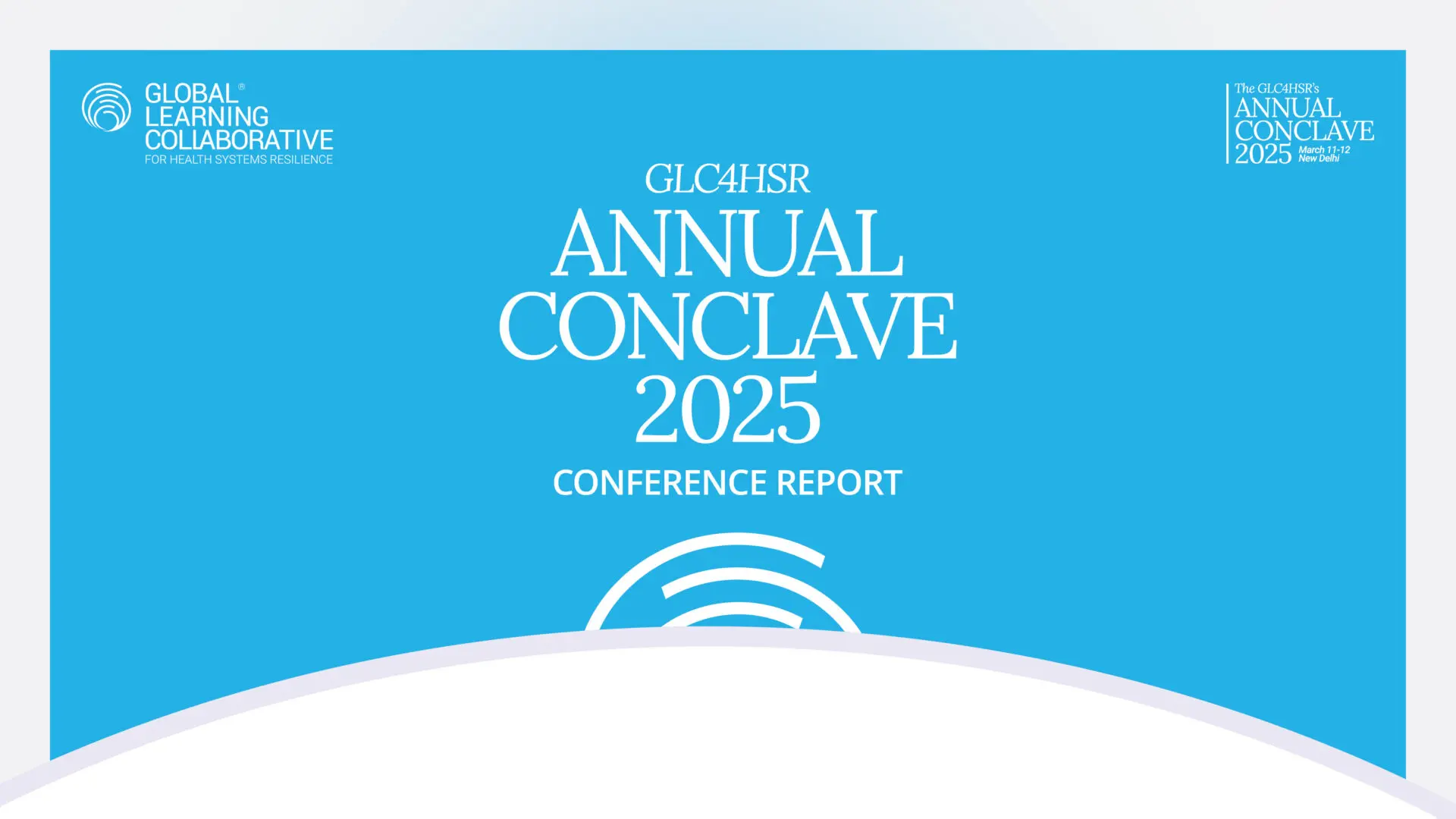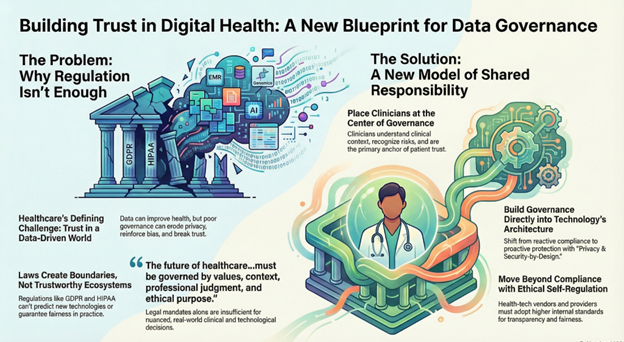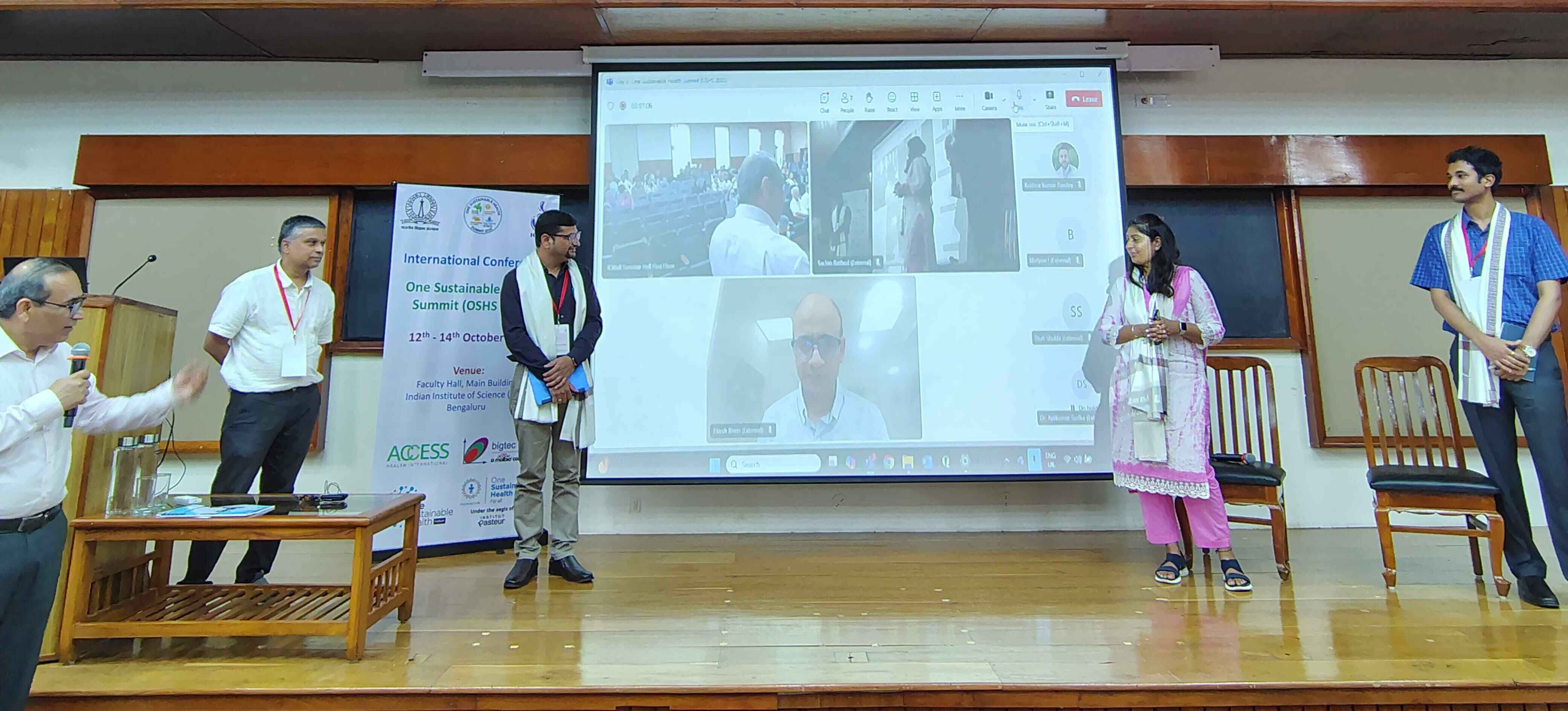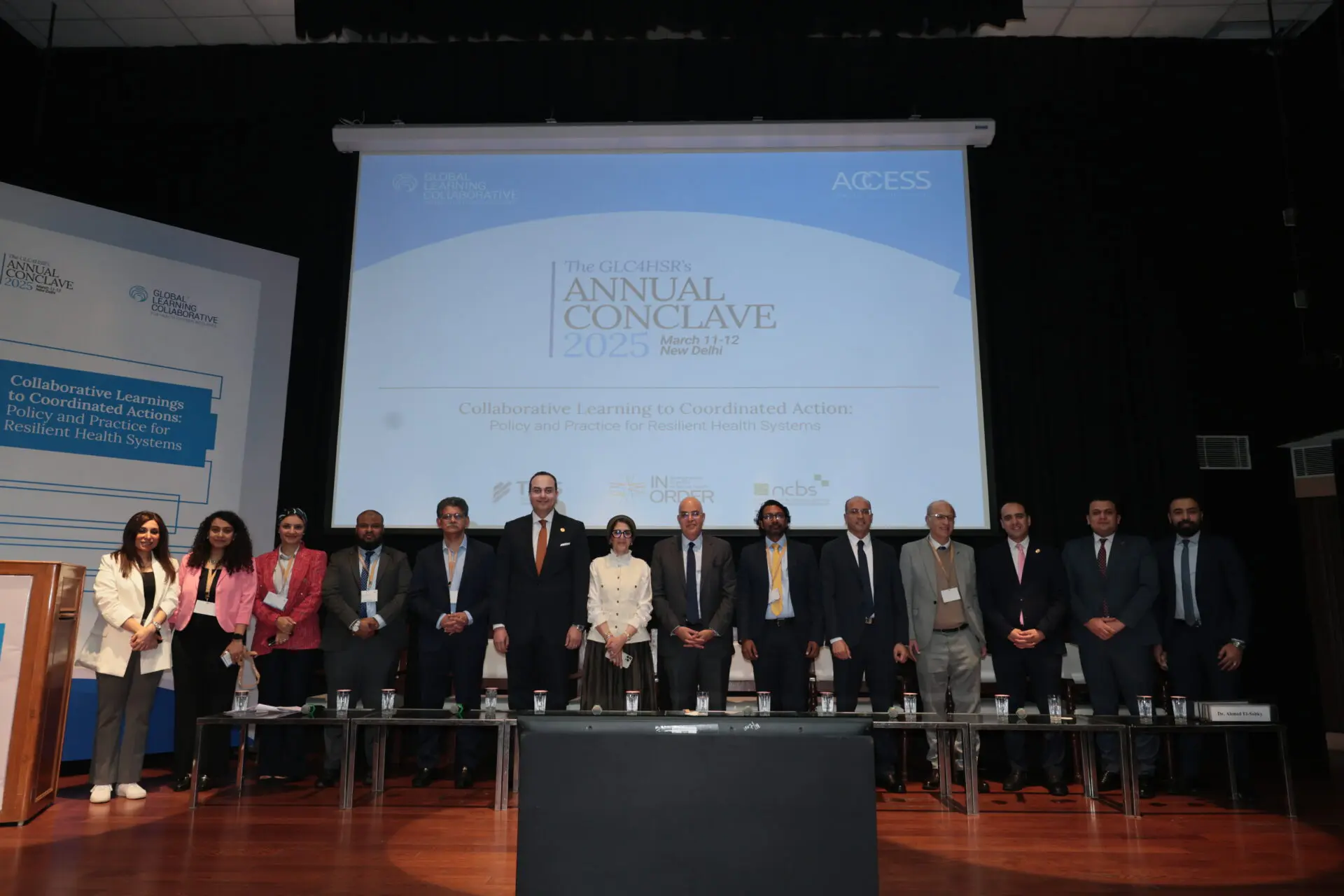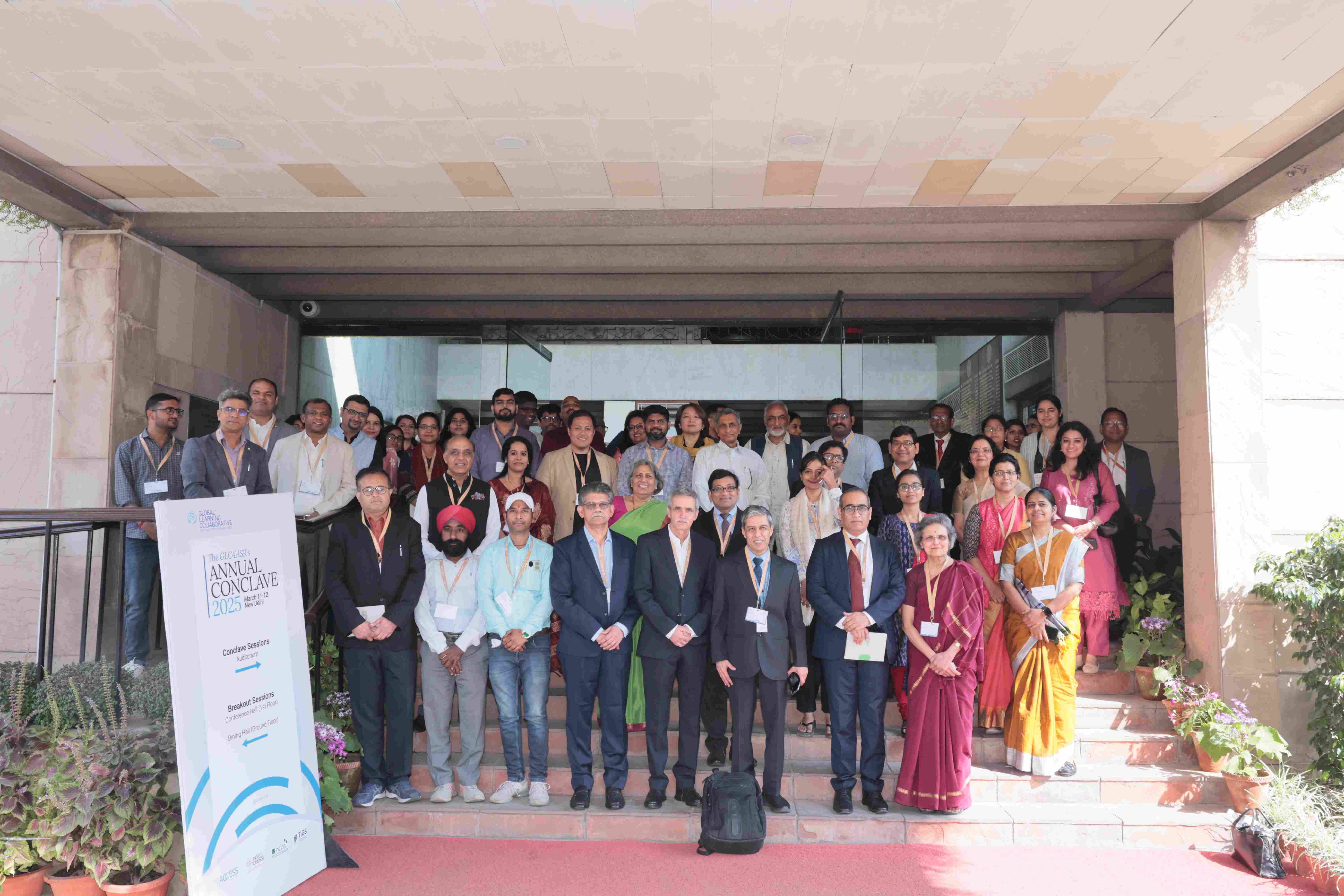GLC4HSR Presents its Annual Conclave 2025 Conference Report
Updates ▪ Jul 7, 2025
Over two days in March 2025, the GLC4HSR’s Annual Conclave brought together over 70 experts and more than 450 participants from 18 countries, featuring 11 thematic sessions, three breakout sessions, and academic poster presentations. Drawing from this diverse, multi-stakeholder forum, we are pleased to announce the release of the GLC4HSR Annual Conclave 2025 Conference Report, a comprehensive volume that highlights the event’s most significant findings and recommendations. We invite you to download and explore the full compendium here.
Speakers emphasized that true resilience starts at the community level, where locally trained teams perform rapid vulnerability assessments, organize mock drills, and issue early warning alerts. By decentralizing authority and resources to frontline networks, especially in rural and peri-urban areas, these approaches shortened response times and built trust between health systems and the populations they serve. Case studies illustrate how participatory governance models, when integrated within primary care structures, enable customized disease prevention measures tailored to local epidemiological and social contexts.
Contributors called for institution-wide disaster management plans, standardized operating procedures, and increased investment in renewable energy solutions, notably solar microgrids with battery backups, to maintain uninterrupted patient care. Initial pilots in Chhattisgarh and Kerala have already cut outages by over 80 percent in nearly 1,000 government facilities.
The findings also highlight the transformative potential of AI-driven diagnostics, wastewater surveillance, and predictive analytics for outbreak prediction. However, experts warned that ethical, scalable deployment depends on secure, cloud-first data architectures, interoperable platforms, and harmonized governance frameworks that honor privacy and equity, especially in low- and middle-income settings.
Mobilizing sustainable financing also remained a key priority. The Conclave discussions spotlighted innovative funding mechanisms that link returns with measurable health outcomes. These include blended-finance tools that leverage public, private, and philanthropic capital to expand rural diagnostics and CSR-backed partnerships that have tripled early diabetes screenings in underserved districts.
Equity and inclusion are also emphasized in the Compendium. Speakers stressed the importance of integrating refugees and internally displaced populations into national health and financial systems, not only as a moral duty but as a practical approach to strengthening collective resilience.
The official launch of the GLC4HSR MENA Chapter, to be co-led along with the Egypt Healthcare Authority, marks a vital step toward context-specific surveillance, workforce development, and financing reforms aimed at conflict-affected regions.
The Compendium also offers strategic recommendations for policymakers, funders, practitioners, and community leaders, including drafting sub-national climate-health action plans; institutionalizing patient and community involvement in service design; investing in supervision, mental health resources, and digital skills for frontline workers; and forming interoperable data-sharing protocols to bridge gaps between surveillance, supply chain, and clinical systems. Cross-sector partnerships are emphasized as essential for sustained progress.


